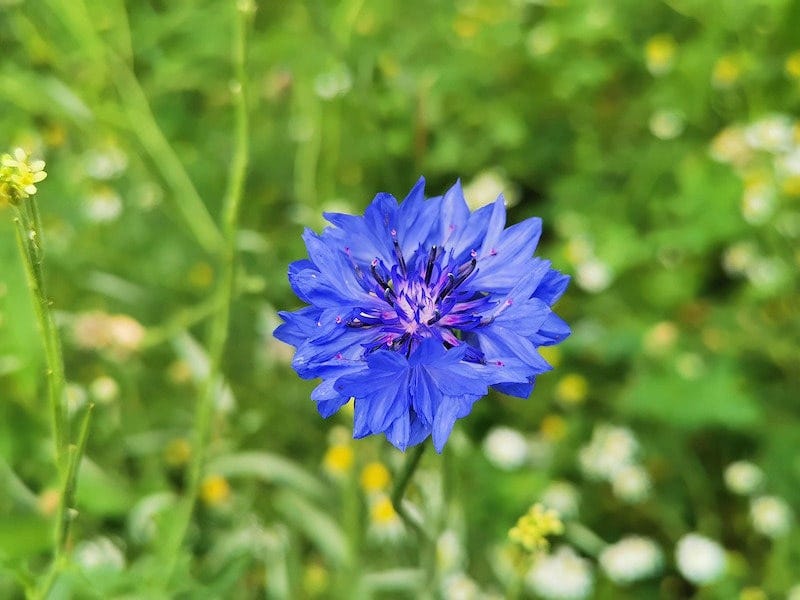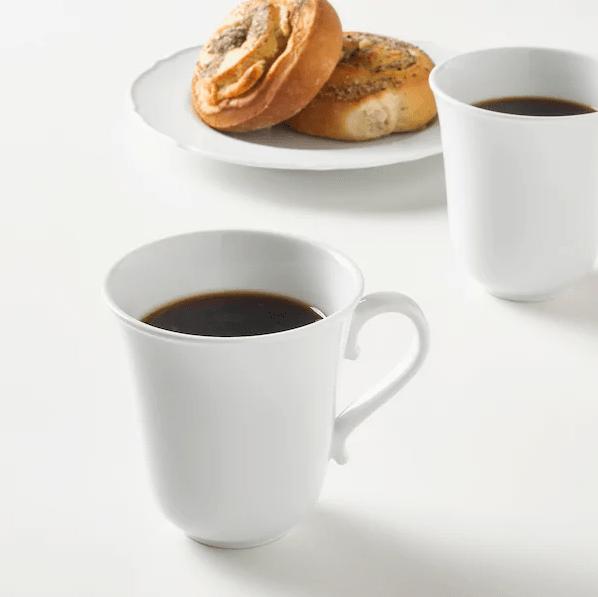spring事物 设计模式
What do you think about the phrase “beautiful design”? You like it, don’t care or does it make you wince?
w ^帽子你想想那句“美丽的设计”? 您喜欢它,不在乎还是让自己畏缩了?
For many, “beautiful” is a derogatory term, whether because it doesn’t go with their personality, or like with some of the designers, they sometimes become coarsened by their professions and find this word trite and shallow. People have been arguing about the notion of beauty throughout their history and aren’t likely to stop doing it any time soon. Beauty vs function in design is one of the most perpetual controversial subjects ever. Some say that the design should be beautiful, others insist that its main goal is to be functional.
对于许多人来说,“美丽”是一个贬义词,无论是因为它不符合他们的个性,还是像某些设计师一样,有时他们会因自己的专业而变得粗俗,发现这个词古怪而肤浅。 人们在整个历史中一直在争论美的概念,并且不太可能在不久的将来停止这样做。 设计中的美感与功能是有史以来最具争议的主题之一。 有人说设计应该漂亮,另一些人则坚持其主要目标是实用。
How do we decide what’s beautiful and what’s not? Is beauty really in the eye of the beholder or is it something deeply inherent in our species? Can aesthetics be a part of utility without contradicting it? Let’s find out more about beauty and aesthetics in design and whether this aesthetics/utility controversy at all makes sense.
我们如何确定什么是美的,什么不是美的? 是真的在情人眼中还是在我们物种中深深固有的东西? 美学可以成为实用性的一部分而又不矛盾吗? 让我们进一步了解设计中的美感和美学,以及这种对美学/实用性的争议是否有意义。
什么是美学 (What is aesthetics)
The Merriam-Webster dictionary defines aesthetics as
Merriam-Webster词典将美学定义为
“a particular theory or conception of beauty or art: a particular taste for or approach to what is pleasing to the senses and especially sight”.
“对美感或艺术的特定理论或概念:对使感官尤其是视觉产生愉悦感的特定品味或方法”。
Abstracting from the theory, in day-to-day life, something aesthetic means something like a combination of things that are pleasing to look at.
从理论中抽象出来,在日常生活中,某种美学意味着某种令人愉悦的事物的组合。
In nature, graphic expressiveness is often realized with the help of light and shadow. Photographers make use of it adding their knowledge about frame composition.
在自然界中,图形表现力通常是在光和影的帮助下实现的。 摄影师利用它增加了关于构图的知识。
With regard to design, beauty as we see it is based on proportions or composition ratios (like the golden ratio, for example), color combinations, and graphic expressiveness. It relates to any object.
关于设计,我们看到的美丽是基于比例或构图比例(例如,黄金比例),颜色组合和图形表达能力。 它与任何对象有关。
Aesthetics is not just about what we see, but humans being primarily visual beings, so we’ll focus on the sense of sight. So everything that corresponds to certain parameters, we consider as beautiful, in art as in everyday life.
美学不仅与我们所看到的有关,而且人类主要是视觉存在的人,因此我们将专注于视觉。 因此,与某些参数相对应的所有事物,在我们的艺术中都被视为与日常生活中一样美丽。
But where does this appreciation of certain forms and combinations come from? Some are based on cultural experiences, but a lot originate from physiology.
但是,对某些形式和组合的欣赏从何而来? 有些是基于文化经验的,但很多是基于生理学的。
美的生物学起源 (Biological origins of beauty)
Beauty is in the brain of the beholder. At least, that’s what neuroaesthetics says — a relatively new scientific discipline at the junction of neurobiology, art, and psychology, that has received its formal definition in 2002.
美丽是情人的大脑 。 至少这就是神经美学 –神经生物学,艺术和心理学交界处的一门相对较新的科学学科,该学科于2002年得到正式定义。
Semir Zeki is the Professor of Neuroaesthetics at University College London, who has been studying how the brain perceives beauty for many years.
Semir Zeki是伦敦大学学院神经美学的教授,多年来他一直在研究大脑如何感知美丽。
According to his studies, the concept of beauty developed long before our species appeared, millions of years ago. Due to nature’s reward system, animals began to feel a sense of satisfaction from what they saw. The basic quality of beauty from the point of view of neurobiology is that it should create a sense of reward. Give pleasure. Admiring an attractive face, a picturesque sunset, or a magnificent building creates a chemical reward in the brain. The area of the cortex, whose activity is associated with the perception of beauty, is generally activated every time we enjoy it, whether this beauty is of visual, musical, cognitive, or even mathematical origin, in contrast to Aristotle’s view that the perception of beauty varies with different objects (or types of art) in which it is found.
根据他的研究 ,美丽的概念早在数百万年前的我们的物种出现之前就已经发展起来。 由于大自然的奖励制度,动物从看到的东西开始感到满足感。 从神经生物学的角度来看,美的基本品质是它应该创造一种奖赏感。 给我快乐。 欣赏迷人的面Kong,如诗如画的日落或宏伟的建筑会在大脑中产生化学奖励。 与亚里斯多德的观点相反,皮层活动与美感相关的皮层区域通常在我们每次享受时都会被激活,无论这种美是视觉,音乐,认知乃至数学起源的。对美的感知因发现它的不同对象(或艺术类型)而异。
Professor Zeki claims that in order for someone or something to be considered beautiful, its visual parameters must fit into narrow frames. We inherit the concept of the structure of the face and body biologically. With the artistic beauty, it’s more complex, though it basically comes down to ideas that different cultures also have some similarities due to the basic biology.
Zeki教授声称,为了使某人或某物看起来很漂亮,其视觉参数必须适合狭窄的框架。 我们从生物学上继承了面部和身体结构的概念。 有了艺术美,它就更加复杂了,尽管它基本上可以归结为不同的文化由于基本生物学也有一些相似之处的想法。

Denis Dutton, who was the Professor of Philosophy at the University of Canterbury in Christchurch, New Zealand, had even bolder views on the biological nature of perceiving beauty. His Darwinian theory of beauty claims that art, music, and other manifestations of beauty don’t depend on the individual characteristics of perception but are an integral part of human nature. A sense of beauty, coupled with pleasure and acuteness of experiences, lies in the sphere of evolutionary development. Beauty is an adaptation mechanism that we develop and strengthen by creating and enjoying works of art.
丹尼斯·达顿 ( Denis Dutton )是新西兰基督城坎特伯雷大学(University of Canterbury)的哲学教授,他对感知美的生物学本质抱有更大的见解。 他的达尔文美感理论声称,艺术,音乐和其他美感表现不依赖于感知的个体特征,而是人性的组成部分。 美感,加上愉悦和经验的敏锐度,属于进化发展的范畴。 美丽是我们通过创造和享受艺术品来发展和加强的一种适应机制。
Professor Dutton stated that though it is widely believed that the earliest works of art were cave paintings (approximately 32,000 years old), in reality, artistic skills are much older. He referred to the so-called Acheulean axes, the oldest stone tools (about 1.76 million years old), that Homo Erectus made even before they knew how to speak.
达顿教授说,尽管人们普遍认为最早的艺术品是洞穴壁画(约有32,000年的历史),但实际上,艺术技能要古老得多。 他提到了所谓的Acheulean轴,这是最古老的石器工具(约有176万年之久),Homo Erectus甚至在他们不知道如何说话之前就制造过。

The number of axes found suggests that they could not be used for hunting. The blades of some axes don’t have traces of use or they are too large to be used for their intended purpose. These facts, and their elegant symmetrical shape and fine materials lead to the most evident conclusion — they are the earliest known works of art, that can inspire even today.
发现的轴数表明它们不能用于狩猎。 某些轴的刀片没有使用痕迹,或者它们太大而无法用于其预期目的。 这些事实以及其优雅的对称形状和精美的材料可以得出最明显的结论-它们是已知的最早的艺术品,即使在今天也可以激发灵感。


The Darwinian aspect of this theory lies in the fact that similar to the peacock’s tail beauty, the ability to masterfully execute such tools meant additional advantage in the process of sexual selection.
该理论的达尔文主义方面在于,与Kong雀的尾巴美感相似,熟练地执行此类工具的能力意味着在性选择过程中的额外优势。
Stefan Sagmeister:捍卫美丽 (Stefan Sagmeister: In defense of beauty)
Beauty is one of the UI/UX design trends for 2020.
美丽是2020年UI / UX设计趋势之一 。
History knows cases when the subjective aesthetics of design were opposed to its functionality. This happened in the late 19th-early 20th centuries primarily in graphic design, architecture, and interior design. Functionalism in architecture was born whose main idea was that the form of an object should strictly obey its function. All decorations that don’t serve any immediate purpose must be removed. It was born as a result of changes in building techniques, new types of buildings required, and changing cultural ideals. Technologies and mass production played their role too. This aesthetic approach has had a major impact on today’s world. To the point, the concept of beauty was at some point despised.
历史知道案例的设计主观美学与其功能相反。 这发生在19世纪末20世纪初,主要发生在图形设计,建筑和室内设计中。 建筑中的功能主义诞生了,其主要思想是对象的形式应严格遵守其功能。 所有没有任何直接用途的装饰品都必须删除。 它的诞生是由于建筑技术的变化,所需的新型建筑以及不断变化的文化理想的结果。 技术和大规模生产也发挥了作用。 这种美学方法对当今世界产生了重大影响。 到了这一点,美的概念在某个时候被轻视了。
Whether beauty needs to be defended is open to debate, but if we were to name a person who’s well-known for it, it would be Stefan Sagmeister — a New York-based graphic designer, storyteller, and typographer. After studying the subject of happiness, he decided to tackle the subject of beauty:
是否需要捍卫美丽尚有待商debate,但如果我们要说出一个以美丽闻名的人,那就是斯蒂芬·萨格迈斯特(Stefan Sagmeister),他是纽约的平面设计师,讲故事的人和印刷术家。 在研究了幸福的主题之后,他决定着手解决美丽的主题:
Some of his ideas from this video:
该视频中的一些想法:
Beauty is natural for people of all time periods
美容对于所有时间段的人都是自然的
People adorned their surroundings living in caves and castles. In Gothic, Renaissance, Baroque eras — always and everywhere. It’s only in the 20th century that they’ve decided to seriously doubt it in exchange for function. Modernists build houses with functionality in mind and avoid ornamentation, but people who live in these houses start decorating them immediately.
人们对居住在洞穴和城堡中的周围环境进行装饰。 在哥特式,文艺复兴时期,巴洛克时期–时时无处不在。 直到20世纪,他们才决定以功能换取其严重怀疑。 现代主义者在建造房屋时会考虑到功能性并避免装饰,但是住在这些房屋中的人会立即开始对其进行装饰。
Beauty improves living standards
美丽提高生活水平
Beautiful architecture reduces the crime rate and raises the level of happiness. Life can be destructive for the psyche in places that lack beauty. Semir Zeki would say that this happens because where there is no beauty, there is no encouragement.
美丽的建筑降低了犯罪率,提高了幸福感。 在缺乏美感的地方,生活可能会对心灵造成破坏。 Semir Zeki会说,发生这种情况是因为没有美,就没有鼓励。
People usually agree on what is beautiful and what’s not
人们通常会在美丽和不美丽之间达成共识
People en masse favor the same colors and the same shapes. Most can recognize the harmonious works of acknowledged artists among fakes. Even mentally disabled people show the same results.
人们普遍喜欢相同的颜色和相同的形状。 大多数人都可以识别假货中公认的艺术家的和谐作品。 甚至弱智人士也显示出相同的结果。
Lack of beauty = indifference
缺乏美丽=冷漠
As a rule, no one makes ugly things on purpose. They are done as a result of indifference. To carry on with a theme of living standards, people litter more in ugly places, because they don’t care. In beautiful places, they take pictures and behave better.
通常,没有人故意制造丑陋的东西。 他们是无动于衷的结果。 为了维持生活水平这一主题,人们在肮脏的地方乱丢垃圾,因为他们不在乎。 在美丽的地方,它们可以拍照并表现得更好。

Image:
图片: phaidon.com phaidon.com
设计美学:实用 (AESTHETICS IN DESIGN: Practical use)
This is where the line between aesthetics and utility becomes blurred. Beauty is more than just a superficial strategy: it has a pervasive influence on our lives, stimulating our senses, and ultimately making the world a better place.
这就是美学与实用性之间的界线变得模糊的地方。 美丽不只是一种肤浅的策略:它对我们的生活产生深远的影响,激发我们的感官,最终使世界变得更美好。
美的价值和光晕效果 (The value of beauty and the Halo effect)
According to the paper by Ines Schindler, a senior research fellow at the Max-Planck Institute for Empirical Aesthetics, beauty is something that we seek for its own sake. The act of admiring the aesthetics is emotionally fulfilling and gives us pleasure, thus becoming an ultimate goal instead of being just a side order.
根据马克斯-普朗克经验美学研究所的高级研究员Ines Schindler的论文 ,美是我们自己寻求的东西。 欣赏美学的举动在情感上是令人满意的,并给我们带来快乐,因此成为最终目标,而不仅仅是旁观者。
What’s more, the so-called Halo effect makes it difficult to separate the content of a work from its form. The Halo effect is a cognitive bias that in simple words means that what is beautiful seems also interesting, good, and usable.
此外,所谓的晕轮效应使很难将作品的内容与其形式分开。 Halo效应是一种认知偏见,用简单的词来说,意味着美丽似乎也很有趣,很好并且可用。

美丽着迷 (Beauty captivates)
Aesthetic experience is similar to the concept of flow, states in his work Mihaly Csikszentmihalyi, a Hungarian-American psychologist.
匈牙利裔美国人心理学家Mihaly Csikszentmihalyi在其作品中指出,审美体验类似于流动的概念。
When people marvel at somebody or something, they immerse themselves in the process, with a strong attachment to the person or object that fascinates them. For example, the most favorite shade of my favorite color is cornflower blue:
当人们惊叹于某人或某物时,他们会沉浸在自己的过程中,并与使他们着迷的人或物体有着强烈的依恋。 例如,我最喜欢的颜色中最喜欢的阴影是矢车菊蓝色:

So any product featuring a similar shade immediately attracts my attention and I stop to get my dose of endorphins:
因此,任何具有类似阴影的产品都会立即引起我的注意,我停下来服用剂量的内啡肽:

It’s subjective, of course, but often culture-based. The power of color associations can be used to a designer’s advantage.
当然,这是主观的,但通常是基于文化的。 颜色关联的功能可用于设计师的优势。
简约之美 (Beauty in simplicity)
People prefer things that are easy to understand. According to the study by Rolf Reber, the Professor of Psychology at the University of Oslo, aesthetic pleasure can be derived from the perceiver’s ease-of-processing. In other words, the easier something can be processed, the more welcome it becomes to a person. This idea explains why a complex idea presented in an accessible way can give a feeling of aesthetic pleasure.
人们喜欢易于理解的事物。 根据奥斯陆大学心理学教授罗尔夫·雷伯(Rolf Reber)的研究 ,审美乐趣可以从感知者的易处理性中获得。 换句话说,某些东西越容易处理,就越受人欢迎。 这个想法解释了为什么以可访问的方式呈现的复杂想法可以给人以美感。
Moreover, even the captivating effect of the golden ratio is perhaps can be explained by the sensation of simplicity it gives to an onlooker.
而且,甚至黄金分割率的迷人效果也可以通过它给旁观者带来的简单感来解释。

Image:
图片: tomaskral.ch tomaskral.ch

Banking App Design by
Shakuro Shakuro的银行应用程序设计
美丽多变 (Beauty is changeable)
Although our attitude to beauty is integrated into us as a species, in more detailed respect, people tend to disagree about much of what they find beautiful or ugly. Sometimes something too beautiful is perceived as ugly and vice-versa, like with the case of Barocco and brutalism style usage in web design.
尽管我们对美丽的态度已融入一个物种,但在更详细的方面,人们倾向于不同意他们发现的美丽或丑陋的事物。 有时候,太美的东西被认为是丑陋的,反之亦然,例如在网页设计中使用Barocco和野蛮风格的情况。
As suggested in the research by Haiyang Yang of the Johns Hopkins University, USA, and Leonard Lee of the National University of Singapore, these preferences may be changing constantly in response to the media and popular culture. Take a look at the video by an English-New Zealand make-up artist and author Lisa Eldridge, where she shows the changeable nature of what was considered beautiful in the history of make-up:
正如建议研究由海扬约翰斯·霍普金斯大学,美国和新加坡国立大学的伦纳德·李,这些偏好可能在回应媒体和大众文化的不断变化。 观看由英国和新西兰的化妆师兼作家莉萨·埃德里奇(Lisa Eldridge)制作的视频,她展示了化妆史上被认为是美丽的事物的多变性质:
结合美学和功能 (Combining aesthetics and functionality)
Design is not art. Design’s main task is to make something usable when the functional task comes first, and the aesthetics are secondary. Design should solve the problem for which it is created. The function is first defined by the purpose of an object, and the aesthetics depend on the function. If you are creating a website, then its readability and usability are more important than in what style it’s made. Because there are a lot of styles.
设计不是艺术。 设计的主要任务是在功能任务排在第一位且美观次要时使某些东西可用。 设计应解决为其创建的问题。 首先根据对象的目的定义功能,而美观取决于功能。 如果要创建网站,则其可读性和可用性比网站的样式更为重要。 因为样式很多。
Utility is expected to come by default. You can’t impress people by something that just works fine. Perhaps, this is why they are craving for something that differentiates. Like beauty. It’s possible to combine the best sides of both at the same time. These are not mutually exclusive things. When the design is done right, you don’t have to choose between aesthetics and functionality. Great designers see an object and find the fitting aesthetics that accentuate its value.
实用程序默认为默认。 您无法通过效果良好的方法打动人们。 也许,这就是为什么他们渴望与众不同的东西。 喜欢美丽。 可以同时结合两者的最佳方面。 这些不是互斥的。 当设计正确完成时,您不必在美观和功能之间进行选择。 伟大的设计师看到了一个物体,并发现了突出其价值的装修美学。
This is an ordinary IKEA Upplaga mug that you can buy for $2.99:
这是一款普通的宜家Upplaga马克杯,您可以以2.99美元的价格购买:

Despite the famous simple and utilitarian Scandinavian design of all things IKEA, the company frequently uses some ornamentation in their designs. Like this cup, made in retro style with “unnecessary” handle elements and soft shapes. Many people would prefer this design instead of something strictly functional, deriving pleasure from using it. This way the beauty becomes the function.
尽管宜家采用了著名的简单实用的斯堪的纳维亚风格设计,但该公司在设计中经常使用一些装饰。 像这杯一样,以复古风格制成,带有“不必要的”手柄元素和柔软的形状。 许多人宁愿使用这种设计,也不愿使用严格的功能,而从使用中获得乐趣。 这样,美就变成了功能。
Sometimes, it’s curiously vice-versa, when the function becomes the beauty, like with transparent watches:
有时,奇怪的是反之亦然,当功能变得美丽时,就像透明手表一样:

Image:
图片: hublot.com hublot.com
Great design makes the function so obvious that you cannot imagine an item made in another form, like a wheel, for example, that for this reason doesn’t need to be reinvented. It’s very functional and has the most universally liked round form, with aesthetics emerging from the functions of the object. In the case of apps and websites, it is applicable as UI/UX design, that it is so clear and user-friendly, that itself makes the site or app look nice(r).
出色的设计使功能如此明显,以至于您无法想象以其他形式(例如,轮子)制成的物品,因此不需要重新发明。 它非常实用,具有最普遍喜欢的圆形形状,并且从物体的功能中产生了美感。 就应用程序和网站而言,它适用于UI / UX设计,它是如此清晰且易于使用,本身使该网站或应用程序看起来不错。
Combining utility and aesthetics in design can be very difficult. There are countless groups of people and taste preferences. That’s why there are no ready-made perfect solutions in design. That’s why it is so important to be in the know of recent design trends and skillfully apply them in your works (or not, if it’s not required).
在设计中将实用性和美观性相结合可能非常困难。 有无数的人群和口味偏好。 这就是为什么在设计中没有现成的完美解决方案的原因。 这就是为什么了解最新的设计趋势并熟练地将其应用到您的作品中(或不需要,如果不需要的话)非常重要的原因。
But the result is worth it.
但是结果值得。
Originally published at https://shakuro.com.
最初发布在 https://shakuro.com 。
翻译自: https://uxplanet.org/what-makes-something-beautiful-and-how-to-use-it-in-design-a5491e09256d
spring事物 设计模式





















 141
141

 被折叠的 条评论
为什么被折叠?
被折叠的 条评论
为什么被折叠?








